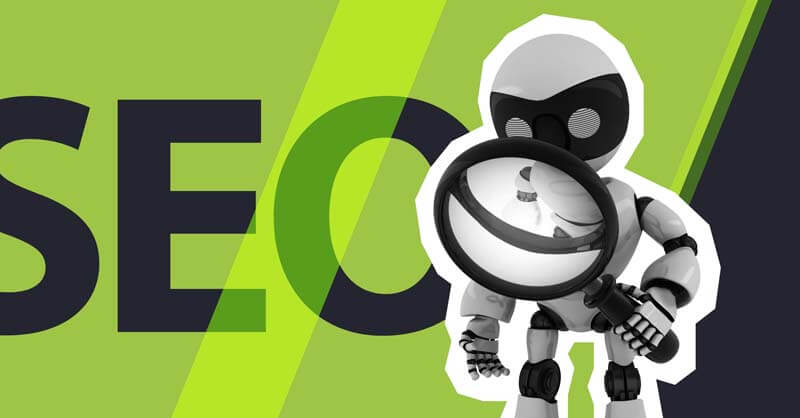The launch of ChatGPT, a new AI chatbot, took the world by storm in late 2022.
But this is “just the tip of the AI iceberg”, according to Paul Roetzer, founder and CEO of Marketing AI Institute.
AI has been causing ripples through the content marketing and SEO industries for some time. Many companies have already been experimenting with AI-based SEO tools to get ahead of the curve.
But ChatGPT’s arrival on the scene means marketers can no longer afford to ignore it. It’s only a matter of time before AI dominates SEO strategies.
This is good news. AI can help marketers to do SEO better, faster, and at scale.
Here’s how AI can support and enhance your SEO efforts.
1. Keyword research
Keyword research is a core part of SEO. It gives you insight into the queries your audience are searching for on Google and helps you find the most appropriate keywords to target. In doing so, you create the chance to rank well in search engines for those particular topics.
Searching for relevant keywords has always been a time-consuming and somewhat tedious task. Using AI helps to speed up the process. Marketers can generate a list of hundreds to thousands of keywords from a single input to optimise their content.
AI-based tools making this possible include the likes of Semrush, SurferSEO and, of course, ChatGPT.
ChatGPT can participate in discussions and answer questions in a way similar to a human. It can write content, stories, poems, ad copy and more.
Conducting keyword research with ChatGPT essentially means asking it what keywords you should be considering. Simple, right?
Let’s say you’re writing a blog post about the benefits of outsourcing to a contract manufacturing company. You can ask ChatGPT to generate a list of the highest-rated keywords related to outsourced manufacturing and get a response just moments later.
Not all those keywords will end up being good opportunities, but it certainly provides a great starting point for further research.
2. Topic cluster creation
Not only can AI help you identify keyword opportunities, but it can also help identify terms that have a semantic relationship to your chosen primary keyword. And this helps with creating topic clusters, which is crucial to SEO.
Topic clusters are a group of content that revolves around a central topic and use a pillar page - a comprehensive resource page that covers the topic in-depth - to link to and from. This method helps to deliver better rankings for essential keywords to your business.
Using ChatGPT, for example, you can share a list of keywords and ask the bot to cluster them into different groups based on their semantic relevance. This helps you to identify all the terms that are key to the topic, so you can start creating content around them.
3. Content optimisation
Besides keywords and topic clusters, there are other ways to optimise your content for search engines to ensure they are more visible on the web.
These include, but are not limited to:
- Including your keyword in your title and meta description
- Ensuring your title is less than 70 characters
- Ensuring your meta description is less than 155 characters
- Using alt tags on all images
AI can help with many of these processes too.
For example, using Jasper.ai’s ‘Blog Post Topic Ideas’ template, you can generate a series of titles containing your target keyword.
ChatGPT can go a step further and scan your content before generating a title and meta description with the right amount of characters for you.
Naturally, these may need tweaking. AI is good, but it can’t replace a human. Besides, editing AI-generated content to make it more human is also vital for SEO. Google can tell if the content has been produced solely by AI and will rank it down. But your AI-generated content gives you a great starting point.
4. Link building
To increase your search engine ranking today, you also need a good link building strategy. And AI-powered SEO tools can make this process easier too.
Link building means acquiring links (hyperlinks) from other websites to your website. A good number of links to your website indicates to search engine algorithms that your content is valuable.
When combined with strong technical SEO foundations and impactful content, link building can effectively drive more organic traffic to your website.
Using a simple command in ChatGPT, you can generate a list of popular and relevant websites to target for outreach campaigns. You can also use the tool to help you reword your outreach emails to make them tailored and unique. You can get your link-building strategy off to a great start in just a few commands.
5. Analysing and predicting rankings
Understanding your website’s rankings is essential for SEO. HubSpot and Google Analytics are great tools for this.
But so much goes into how your website ranks in Google that it can be difficult to know exactly what is impacting your ranking.
The trouble is, no one knows (outside of Google) exactly how pages are ranked and promoted. But, AI is helping marketers to gain more insight.
SEO Vendor’s ‘CORE AI’ tool can pinpoint the exact role that each variable is playing. It can also predict rankings growth and automate the identification of issues and provide measures to correct them. You can then use that information to create an effective SEO strategy that is more likely to result in a top ranking.
AI is only going to get smarter. In the future, it’s predicted that it will be able to analyse your website and identify any potential red flags. With this information, you’ll be able to make the necessary changes to your website before it’s too late.
Summary
AI can’t replace the practice of search engine optimisation completely. But AI-powered tools are becoming increasingly valuable to SEO success.
Companies of all sizes can use accessible AI tools to supercharge their SEO practices and capitalise on more efficient processes, smarter decision-making, and better results. Incorporating these tools into your tech stack will ensure your business remains competitive in the digital age.


